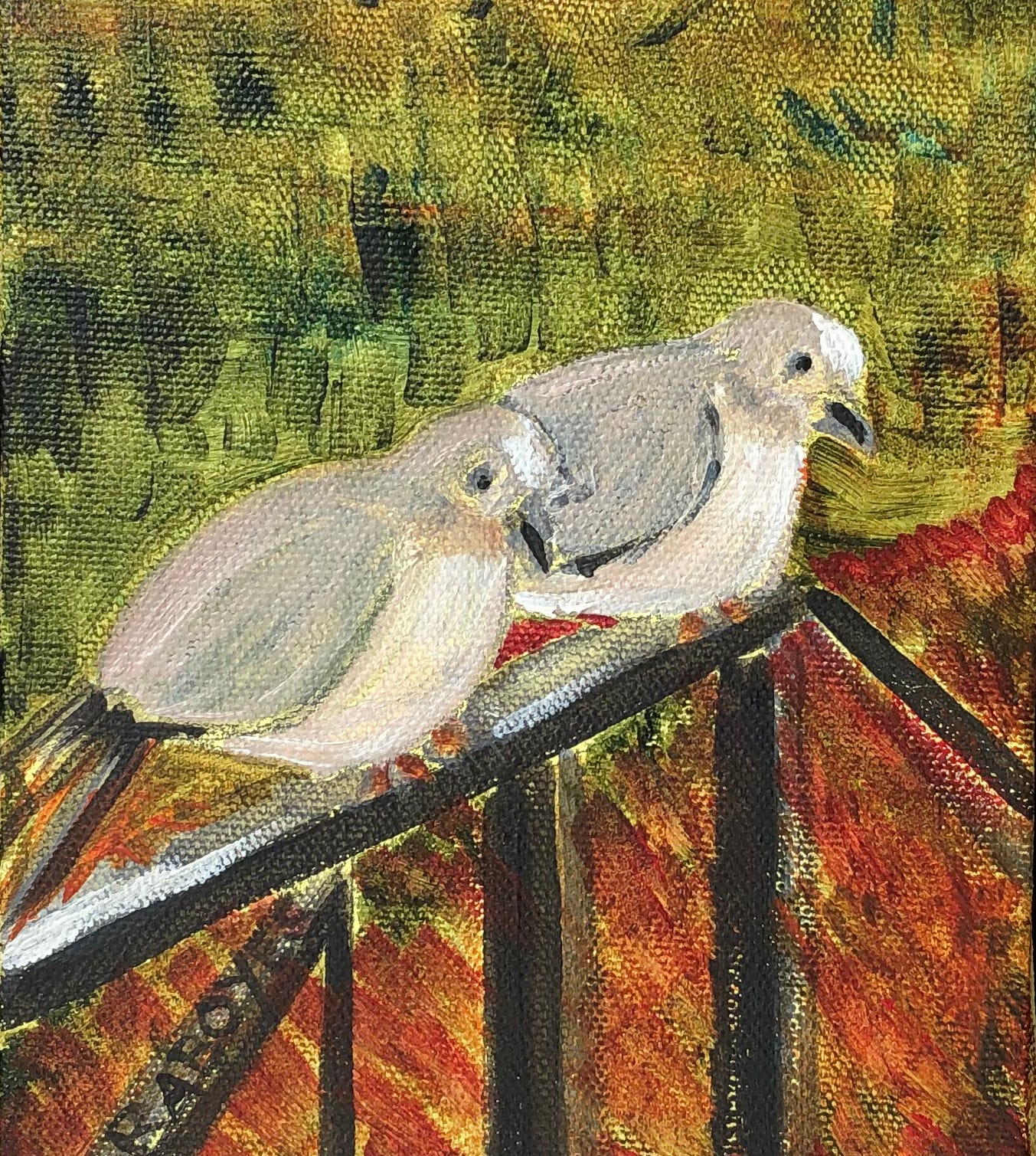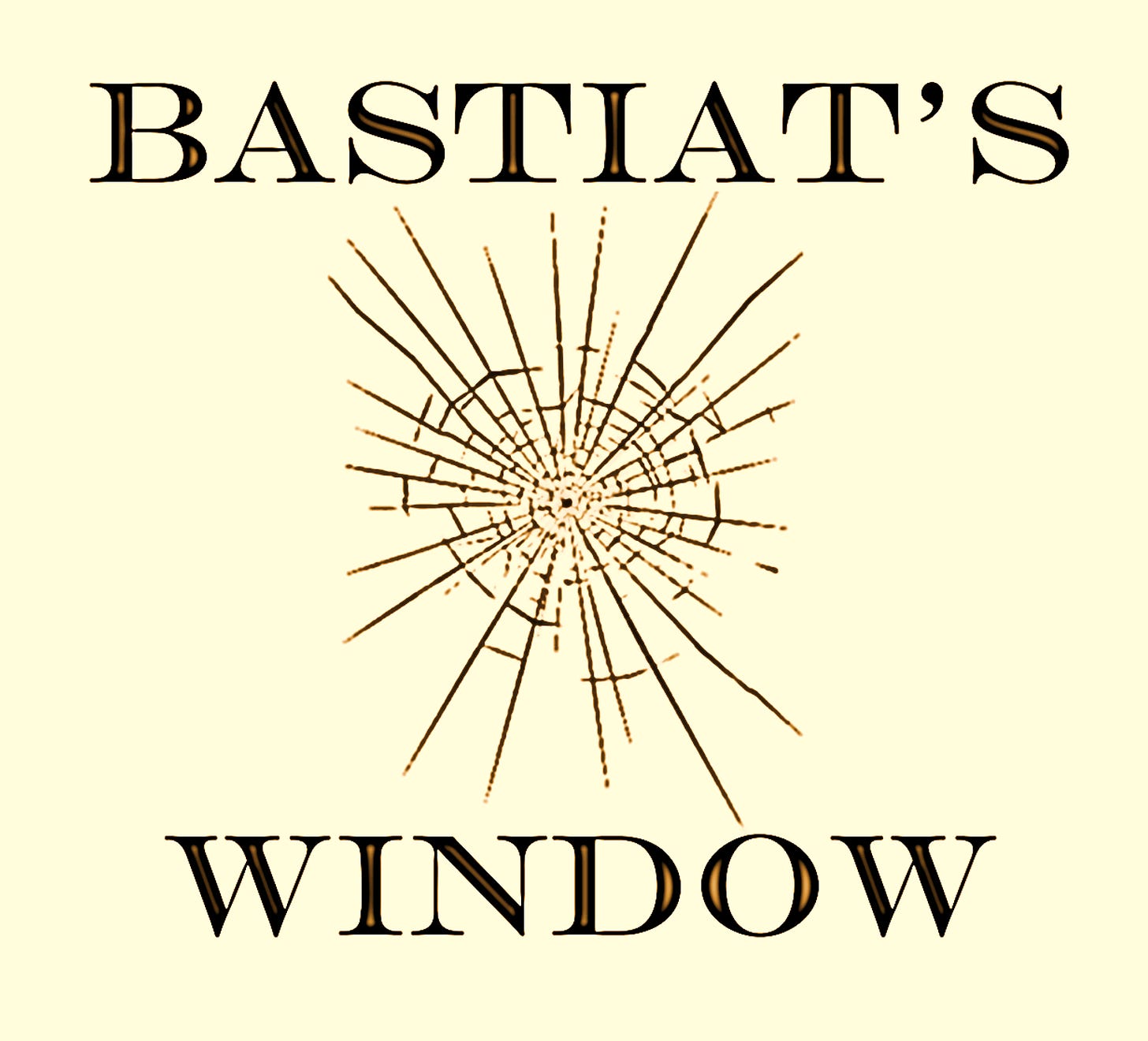“Turtle Doves” by Alanna S. Graboyes (asgraboyesart.com)
It’s Friday evening. I’m writing several articles and blogposts on health and economics, but as suppertime approaches, none is quite finished. So, for now, I’ll just offer a brief note on birds, life, death, and survival. For several weeks, a nest of mourning doves (also known as Carolina turtledoves) has graced the potted palms behind our house. A while back, two tiny eggs appeared, and we’ve watched their progress from close up. Mourning doves are either incredibly trusting or incredibly stupid. I don’t know which and don’t care. We go about our activities six feet away, and the parents either sense that we are not a risk or cannot comprehend that we are.
Last Sunday, the male slammed at high speed into our glass door—and we saw and heard the catastrophe unfold. He twitched pathetically and then died a minute or so later. After a chat with the local birder society, we concluded that we could do relatively little for the mother and her two nestlings. Searches on the internet suggested that the chances for the little ones’ survival were minimal, given the loss of a one-half of their support team. Not to overstate our sentiments, but we mourned with the bird. We arrayed a bit of seed and some water for her. I’m not sure whether she took advantage of our offerings.
A week later, I’m happy to say, the mother seems strong. The fledglings—swelling in size at an astonishing rate—seem strong and lively. They’re testing their wings, as mother holds them down. At times, she nestles them like infants, and they hoot softly. But more often now, she retreats a ways and watches from a distance as they experiment and extemporize. They twist and flap and contort. I’m guessing it is only a day or two before they depart—with another month or so in the wild of assistance from the mother (though the father usually carries the burden at this stage as the mother prepares another nest). After a week of worrying about them as if they were family, there’s a sense of relief that they have at least made it this far.
For us, it has been a fine and gratifying year, but one with its challenges. In a blogpost last week, I quoted William Faulkner—a passage on the past from his Requiem for a Nun. For the second time in a week, I’ll quote the bard of Oxford who, in his Nobel Prize address, said, “I believe that man will not merely endure: he will prevail. He is immortal, not because he alone among creatures has an inexhaustible voice, but because he has a soul, a spirit capable of compassion and sacrifice and endurance.” That passage was uncharacteristic of Faulkner, who was quite the cynic. (Some believed he saw his Nobel address as a chance to rectify that all-too-correct perception.)
This week, watching the tragedy and triumph of our doves, I feel certain that Faulkner was onto something. A good Labor Day weekend to you all.






With respect, softly versus softley?
Check.